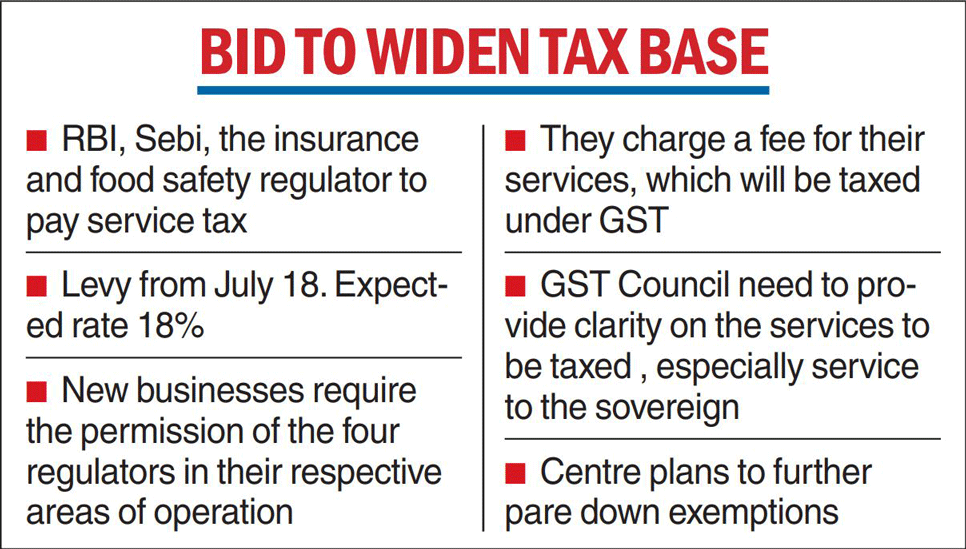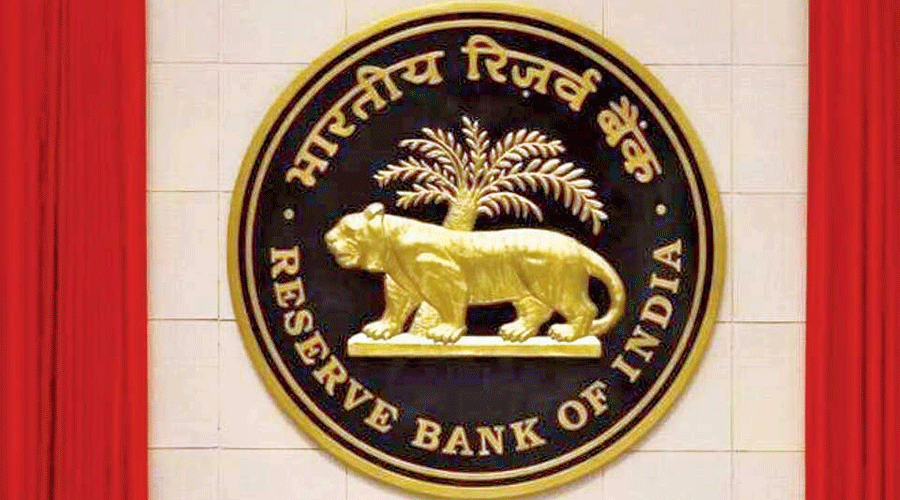In a move to widen the tax base, the GST Council has withdrawn the exemption from taxes provided to four regulators including the Reserve Bank of India.
It has not yet clarified the services provided by the regulators and the rate of taxation.
The Council said the exemption is granted to the Reserve Bank of India (RBI), Insurance Regulatory and Development Authority (IRDA), Securities Exchange Board of India (Sebi) and Food Safety and Standards Authority of India (FSSAI) and they would be taxed from July 18.
Analysts said the move by the GST Council would increase the cost of doing business.
Bimal Jain, Leader, A2Z Taxcorp LLP said: “It is a new approach and dimension to expand the tax base but, need clarity on what kind of services by such regulators would be taxable and whether sovereign government services by the regulators are also going to be taxable.”He said it would increase the accountability of the regulators to their customers.

Abhishek Jain, partner indirect tax, KPMG in India, said: “This has been done by the government to widen the tax base and overall rationalise the exemptions. While such services for most businesses will be creditable, in case of B2C transactions and for the GST exempted sector, the same would become a cost and would mean a slight uptick in revenue collections.”
He said the services of regulators could attract 18 per cent levy.
The four regulators are essentially autonomous bodies which are responsible for granting licenses and permissions.
Any new business under financial, insurance, securities or food sector requires their permission. These bodies, therefore, charge a fee for their activity which goes towards their running costs. The definition of ‘‘supply’’ under the GST is wide enough to include even these transactions.
“Considering these are government agencies which have been given authority under a law to charge a fee, taxing their activity means an additional cost for a business. It appears that in the spirit of ‘ease of doing business’ their activity had been specifically exempted in GST which allowed new businesses to seek required approvals without any additional tax costs,” Charanya Lakshmikumaran, partner, Lakshmikumaran & Sridharan Attorneys, said.
“The government is now bracing to include even these bodies in their tax net by withdrawing the exemption. Even if the businesses are allowed to claim ITC (input tax credit) for such taxes charged by these bodies, ultimately the cost of these services will have to borne by the end consumer,” the analyst said.










